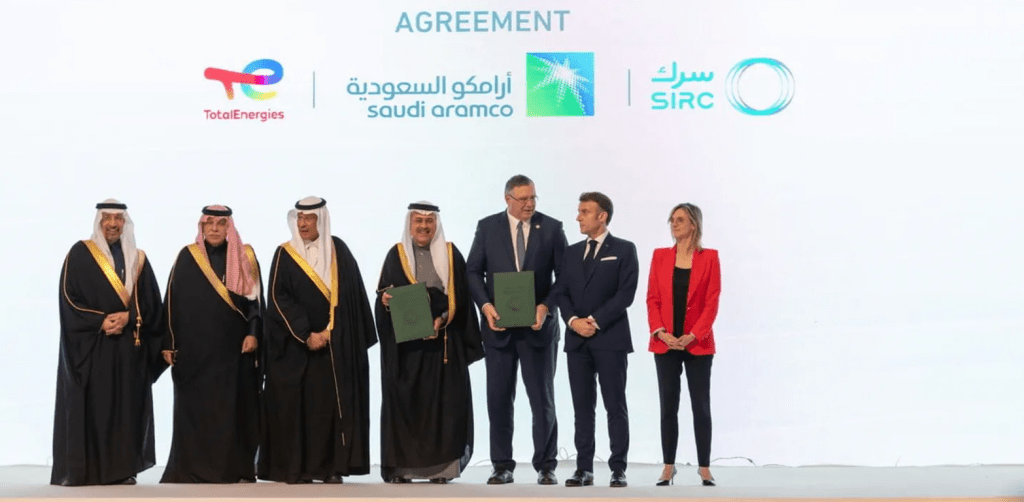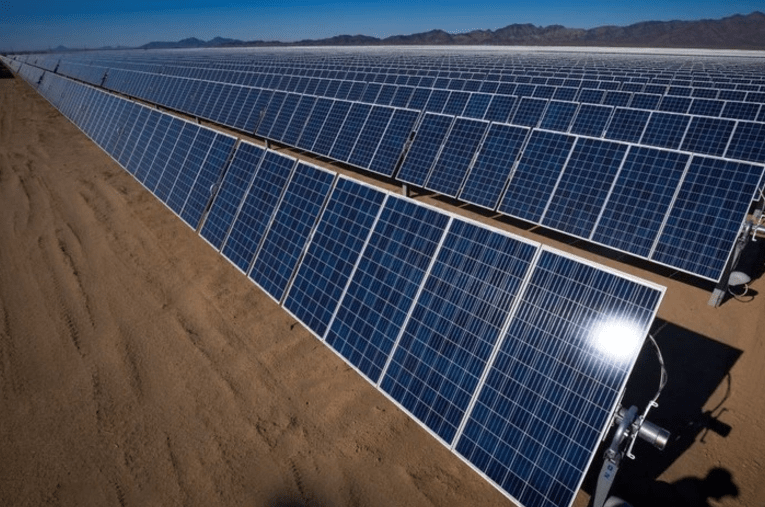Saudi Arabia and France have taken a significant step toward renewable energy development with a series of commercial agreements announced at the Saudi-French Investment Forum held in Riyadh on Tuesday, Dec. 3.
French President Emmanuel Macron and Saudi Arabia’s Minister of Energy, Prince Abdulaziz bin Salman bin Abdulaziz, were present to endorse this partnership aimed at addressing global climate challenges and boosting sustainable development within the Kingdom.
Sustainable Aviation Fuels (SAF): A Key Focus


One of the most notable agreements involves a joint initiative between Saudi Aramco, the Saudi Investment Recycling Company (SIRC), and France’s TotalEnergies.
The collaboration will focus on creating a state-of-the-art sustainable aviation fuel (SAF) plant in Saudi Arabia’s Eastern Province. The plant will utilize waste materials such as used cooking oil and animal fats to produce low-carbon aviation fuel.
Aramco CEO Amin Nasser highlighted the critical need for lower-carbon alternatives as aviation emissions rise alongside the kingdom’s growing air travel demand. The project aims to support both domestic and international airlines, aligning with Saudi Arabia’s expanding tourism and aviation sectors.
Expanding Renewable Energy: Solar Projects and Recycling Efforts


The forum also featured other agreements to bolster renewable energy in Saudi Arabia. TotalEnergies signed a power purchase agreement for the Rabigh 2 solar power plant with the Saudi Power Procurement Company (SPPC), a 300-megawatt project.
Similarly, another solar project, Al Masa’a, will be developed in partnership with SPPC, French energy giant EDF, and China’s State Power Investment Corporation.
Moreover, SIRC and Veolia, a French leader in environmental solutions, inked a deal to enhance waste management and recycling systems in Saudi Arabia. These initiatives underline the kingdom’s commitment to diversifying its economy and achieving sustainability goals under Vision 2030.
Regional Implications and Industry Growth
The collaboration isn’t just limited to Saudi Arabia. In neighboring UAE, TotalEnergies is working with Masdar to produce SAF using methanol derived from green hydrogen.
These projects reflect the region’s collective momentum in transitioning to sustainable energy solutions.
Despite the promising developments, the global SAF industry faces challenges. According to the International Air Transport Association (IATA), SAF production in 2024 is expected to triple to 1.9 billion liters but still represents only 0.53% of aviation’s fuel requirements. Scaling up will require significant investment and innovation.
These agreements between Saudi Arabia and France mark a pivotal moment in the kingdom’s journey toward sustainability. With projects spanning aviation fuel, solar energy, and waste recycling, this partnership could serve as a model for future international collaborations in the green energy sector.
WE ALSO SAID: Don’t Miss…Stadiums of the Future: Saudi Arabia’s Bold Vision for the 2034 FIFA World Cup



